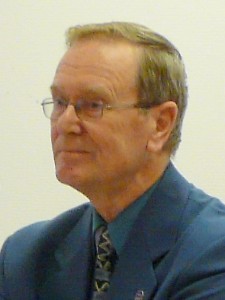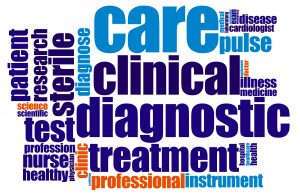Canllaw NICE ME/CFS
Croeso gofalus gan WAMES a’r gymuned ME
Mae WAMES yn croesawu cyhoeddi canllaw NICE 2021 ar gyfer ME/CFS aâr penderfyniad gan NICE i âddilyn y wyddoniaethâ ynghylch amhriodoldeb GET a CBT fel triniaethau ar gyfer ME/CFS. Mae unrhyw driniaeth anhyblyg sy’n seiliedig ar ddamcaniaethau dad-gyflyru a chredoau diffygiol, (sy’n annog pobl i wthio y tu hwnt i’r terfynau) bellach yn cael eu cydnabod yn niweidiol, ac rheoli ynni (dysgu sut i weithredu’n well o fewn eich ‘amlen ynni’), yw’r hyn a argymhellir.
Ychwanegwch at hynny gynnwys Malaise Ăl-Ymarferol fel maen prawf diagnostig  hanfodol a gobeithio bod gennym sylfaen gadarn i adeiladu dull gofal iechyd arni, tra’n cydnabod bod llawer o le i wella ac ymchwilio.
hanfodol a gobeithio bod gennym sylfaen gadarn i adeiladu dull gofal iechyd arni, tra’n cydnabod bod llawer o le i wella ac ymchwilio.
Credwn fod yr oedi cyn cyhoeddi yn gamgymeriad difrifol ar ran NICE. Achosodd drallod aruthrol i gleifion a’u teuluoedd a niwed posibl, yn enwedig i’r rhai sydd newydd gael diagnosis. Gohiriodd ddechrauâr newid yr oedd dirfawr ei angen a methodd â sicrhau cymorth gan weithwyr iechyd proffesiynol a oedd wedi gwrthwynebuâr diffiniad llymach o ME a chael gwared ar y therapĂŻau yr oeddent yn eu hymarfer.
Nid ydym yn obeithiol y bydd y ffordd i wella gofal iechyd yn gyflym ac yn llyfn. Mae peth oâr iaith yn y canllaw yn aneglur ac yn agored iâw ddehongli, ac mae cryn wrthwynebiad o hyd i weithreduâr newidiadau, gydag arwyddion y gallai rhai gwasanaethau geisio ail-frandio, yn hytrach na newid eu harferion. Yng Nghymru hefyd, ychydig iawn o ddealltwriaeth sydd o ME a PEM felly bydd yn anoddach rhannu a lledaenu âarfer daâ. Fodd bynnag, rydym wedi ymrwymo i weithio gyda Llywodraeth Cymru, comisiynwyr, GIG Cymru a Gofal Cymdeithasol Cymru i ddefnyddioâr Canllaw i ddechrau mynd iâr afael ââr argyfwng gofal iechyd sef ME/CFS yng Nghymru.
Dywed cynghorydd meddygol WAMES:
âAs a paediatrician who has had to defend many innocent families of children and young persons with ME from safeguarding proceedings, I hope that the guidelines will finally put a stop to this injustice, and that no longer will young people with ME be labelled as having âMedically Unexplained Symptomsâ or being âPerplexing Presentationsâ as an excuse to refer to social services. Children and young people with ME deserve a firm positive diagnosis from their paediatricians. This will protect them from undue pressures, and lead to appropriate support and help.â

Dr Nigel Speight, WAMES medical adviser
Dr Nigel Speight,
Advisor, WAMES
Honorary Fellow, Doctors with M.E.
Paediatric Physician,
Co- Author, International Consensus Criteria,
Co-Author, Pediatric Primer in Frontiers in Pediatrics,
Advisor, 25% ME Group,
Researcher
Mwy o ddatganiadau:
Isod mae dolenni i sefydliadau ac unigolion yn y gymuned ME sydd wedi ymateb gyda llawenydd a gobaith ar gyfer y dyfodol, hyd at hiraeth a dicter gofalus ynghylch yr oedi anwyddonol a biwrocrataidd.
Action for ME:Â NICE publish the guideline
âThe new NICE guideline is welcomed because it acknowledges the truth of peopleâs experiences, and creates a foundation for hope that future children and adults with ME will not repeat the anguish of the past.â (Sonya Chowdhury, CEO, Action for ME)
Doctors with ME:Â NICE 2021: A Triumph of Science over Discrimination
Doctors with M.E. considers the launch of this guideline to be a watershed moment in the history of ME/CFS medical care in the UK, with implications that extend to those Long Covid (PASC) patients who also meet ME/CFS diagnostic criteria. [Includes quotes from Prof Brian Hughes, Caroline Kingdon, Tom Kindlon, Dr Karl Morten, Dr Charles Shepherd, Dr Nigel Speight, Dr David Strain, Dr William Weir, Dr Asad Khan, Dr Ben Marsh, Dr Shaun Peter Qureshi, Dr KN Hng, Dr Nina Muirhead, Dr Keith Geraghty, Dr Richard Ramyar]
Forward ME:Â New NICE guidelines on ME: forward-ME statement & media support
Doctors, and people with ME welcome the new NICE guideline on ME/CFS, which brings major improvements to the diagnosis, management and support for people with ME â driving major improvements in care
Invest in ME:Â NICE guidelines â taking us forward to 2007
Following the âveritable omnishambles â of the pause in NICE guideline publication Invest in ME (IiME) find the 2021 guideline âis only able to attempt to undo the damage done by inaction, ignorance, apathy and negligence during the past 14 years⌠it stands as a testament to 14 years of nothing much changing for people with ME, 14 years of failure from governments and establishment healthcare and research organisations in treating this disease.â
#MEAction:Â Final NICE ME/CFS guideline published â find out the big news!
Overall, #MEAction UK is pleased that the final guideline is a significant improvement on the 2007 CFS/ME guidelineâŚConcerns remain around how the section on incorporating physical activity will be implemented in practice. While some physiotherapists have a clear understanding of ME and can provide helpful support, others will require significant training and education to ensure harmful practices do indeed stop.
ME Association:Â The new NICE guideline on ME/CFS is published!
After a very through review of all the evidence â from clinical trials, experts and patients â we now have a new guideline that has reversed these recommendations and should be widely welcomed by people with ME⌠The next challenge involves educating and training all health professionals on how to diagnose and manage ME and setting up a full network of hospital-based referral services where GPs can refer for further help.
MECFS Skeptic (Michiel Tack): A historic change for the ME/CFS community
The development of the guideline has been a long process mired with controversy, criticism, and unexpected delays. Its final publication, however, represents a historic change for the ME/CFS community⌠29 October may turn out to be a historical turning point. Hopefully, this will open the way to more fruitful scientific research on the illness and eventually, a cure.
ME Research UK:Â Our response to the updated NICE guideline
Todayâs publication by NICE of its updated⌠guideline marks a significant step in both the acceptance of ME as a physical illness and the recognition of appropriate treatment needs of those affected by the condition. We broadly welcome this significant update and improvement to the previous 14-year-old document, but it marks only the beginning of the transformation needed for ME to be more fully understood and, ultimately, for a cure to be found.
MESiG: Today, NICE have finally published the guidelines for ME/CFS. This is a big step in the right direction. Graded exercise Therapy is not to be offered as an effective treatment! #GETisGONE  Facebook 29 Oct 2021
ME Trust:Â New NICE guideline for ME/CFS
The ME Trust welcomes the publication of the new NICE Guideline. We are very pleased⌠and hope that it will improve the care and support available to people with this debilitating and chronic illness.
Solve MECFS:Â NICE publishes new guidance on diagnosing, treating ME/CFS
Most significantly, the new guidance removes recommendations for Graded Exercise Therapy (GET) due to poor quality evidence, and downgrades recommendations of Cognitive Behavioral Therapy (CBT). This is a historic victory for millions with ME/CFS.
Science 4 ME:Â New NICE guideline creates hope for change at last
Science for ME, an online forum for people with ME/CFS, clinicians, and researchers, has welcomed the much-anticipated publication, calling it a paradigm shift in the care of people with this debilitating condition â hope for change.
Tymes Trust
Virology (Prof Tuller): Trial By Error: NICE liberates new ME/CFS guideline after two-month hijacking nightmare
It is hard to dispute the validity of many concerns raised by critics, including the tally of the damage caused by long-standing policies. Like any clinical guideline, this one is open to abuse by health care professionals who choose to ignore or misinterpret or mis-apply its recommendations. Nonetheless, as another patient noted on Facebook, the publication is a way to âbank some of the progressâ that has been made in correcting the scientific narrativeâand can serve as an impetus for seeking related changes in medical practice and research.


 Yn gynharach eleni, cyn i ganllaw diwygiedig NICE ar gyfer ME/CFS gael ei ohirio, gofynnodd WAMES i bobl yng Nghymru ddweud wrthym am eu hymgynghoriadau â meddygon teulu. Roedd yr ymateb yn isel ond roeddem yn ddiolchgar iâr bobl a wnaeth yr ymdrech i rannu eu profiadau.
Yn gynharach eleni, cyn i ganllaw diwygiedig NICE ar gyfer ME/CFS gael ei ohirio, gofynnodd WAMES i bobl yng Nghymru ddweud wrthym am eu hymgynghoriadau â meddygon teulu. Roedd yr ymateb yn isel ond roeddem yn ddiolchgar iâr bobl a wnaeth yr ymdrech i rannu eu profiadau.

